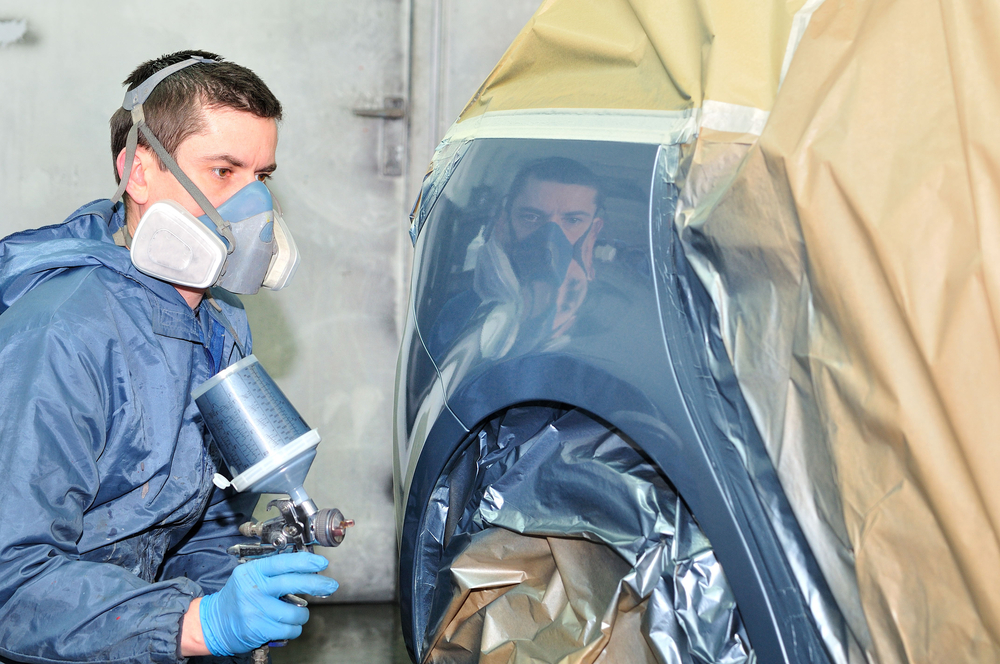Essential Considerations for Post-Collision Vehicle Repairs
Valerie Raskovic

Before we start bashing on various unfortunate collision repair industry practices, we want to make it clear that we are people in the automotive industry and we want to make you aware that not all businesses are made the same. Some reputable shops may go above and beyond not only to do a quality job but also to make sure all components that need to be replaced as part of the collision repair are replaced with high-quality parts. However, it is important to understand that not all of the shortcomings of the collision repair industry can be blamed on disreputable operators. There are a multitude of factors may be at play. These factors that may have a great impact on the vehicle repair quality and out-of-pocket-cost, as well as the total amount of time it takes to restore the vehicle to its prior pre-collision condition.
Having had personal experience in the auto body industry, I have witnessed some of the industry's shortcomings and challenges. To aid the consumer in understanding all of the factors that may influence their vehicle collision repair process, I have sorted each factor into one of 3 categories:
- Vehicle Insurance imposed standards
- Wide spread corruption and fraud within the industry
- Environmental regulations and legal restrictions
Vehicle Insurance imposed standards
Car insurance is a crucial aspect of owning and operating a vehicle in the United States. Basic car coverage is mandated in most US states. In addition, if you are financing a vehicle, most banks are going to mandate that the vehicle be fully insured to safeguard the asset. Car insurance provides financial protection in case of accidents, floods, fires, vandalism, theft, or other damages. Additionally, auto insurance offers peace of mind, knowing that you're covered in unforeseen circumstances and it can help alleviate the financial burden of costly repairs or medical expenses resulting from accidents.
Naturally, the car insurance companies have a great influence over the vehicle collision repair industry. In response to a higher number of loss claims in larger US states like California and New York, some insurance companies started to implement more stringent rules, getting more involved in the collision repair processes. One of the recent trends has to do with insurance companies being reluctant to cover the higher cost of new auto parts and mandating the use of pre-owned replacement parts. This practice of using used parts even on newer model vehicles has contributed to longer repair times due to the limited availability of used parts as well as an overall decline in repair quality. However, not all insurance companies endorse this practice and even among those that do, it's not a universal rule. Some insurance companies may allocate more funds for certain vehicles to use new replacement parts, rather than solely relying on used car parts. The problem is that by regulating where the replacement parts can be purchased the insurance industry is putting further constraints on individual auto body shops and increasing storage related costs and loss of revenue.
Apart from the challenges associated with replacement parts, insurance companies also exacerbate stress on the collision repair industry and individual businesses by delaying inspections and supplements. However, this isn't entirely their fault. Since the COVID-19 pandemic, there has been a shortage of insurance adjusters in various metropolitan areas. For the most part the car insurance inspector position is very challenging and stressful, as it entails dealing with money-related conflicts throughout the day. It is not uncommon for a body shop to have a vehicle sit in a disassembled state for multiple weeks, if not a month, before an appraiser from the insurance company comes to record and possibly approve a supplement. A supplement is necessary when additional damage is found after the vehicle is taken apart, beyond what was initially discovered during the visual inspection. Supplements are quite common and the majority of vehicles undergo additional supplements as part of the insurance company's collision repair evaluation process.
Another concerning issue affecting body shops all across the country has to do with insurance companie's delay in paying out on claims. Some insurance companies have implemented some aggressive policies that not only reduce payout amounts but also slow down the direct payments to the body shop. Even if you haven't signed a direction to pay, allowing the body shop to collect collision repair funds directly from your insurance company, you may still be waiting for the check. While you wait for the insurance payment, your car may remain in a state of disrepair, sitting in a body shop lot or storage facility. Alternatively, if the repairs are completed, you may not be able to take possession of the car until the payment is received. This payment delay issue was exacerbated during the COVID-19 crisis, with some insurance companies failing to send appraisers to assess the car's condition. As a result, repair shops were forced to keep the cars indefinitely, accruing daily lot/storage fees that many insurance companies refused to pay, leading to shops placing liens on numerous vehicles during this time.
Another issue related to insurance companies has to do with storage and labor rates. With a wave of rapid inflation, the cost for practically everything has increased very rapidly within the last few years. That goes the same for the auto body industry. While many insurance companies regularly negotiate with auto body shops individually, some have failed to raise the rates, forcing shops to cut their margins.
Widespread corruption and fraud within the industry
It is no secret that corruption is rampant in the auto collision repair industry. Bribes, inflated damage claims and fraudulent claims are widespread and significantly contribute to the rising insurance premiums. Unsavory practices such as bribes paid out to the insurance appraiser are considered a standard practice amongst some shops and insurance appraisers. These repair shops will bribe or pressure the appraiser to write a larger estimate for parts that may not be replaced or can easily be repaired at a lower cost. This fraudulent practice is often referred to as “Greasing the wheels”. Some body shops will even give a percentage of the repair estimate paid out by the insurance company directly to the insurance appraiser. On the opposite end of the spectrum, some corrupt insurance appraisers may provide very low estimates to auto body shops that are unwilling to comply with their demands for bribes as a retaliatory measure. Even worse they may avoid working with those body shops entirely, causing the business massive delays and loss of revenue.
Another unsavory practice employed by unscrupulous auto body shops resorted to imposing steep storage fees as a means to mitigate financial losses experienced within the industry. Moreover, some of these establishments engaged in the practice of unreasonably inflating service costs, going beyond renegotiating fair market hourly rates with insurance companies. Some customers were even required to sign agreements acknowledging their responsibility for any hourly labor overage not covered by their insurance provider. Another unethical practice involves charging exorbitant rates for parts and labor, adding unnecessary fees or misleading customers about the extent of damage or required repairs. Some of these businesses also implement variable rates depending on the payer, as they adeptly adjust prices to secure higher payments from different parties.
A lesser-known form of deceptive industry practice has to do with the way the collision-damaged vehicle is repaired. For instance, some materials, such as aluminum, are generally deemed unsafe to repair, meaning most insurance companies as well as honest body shop operators would opt to replace the aluminum component rather than attempt to repair it. One example could involve an aluminum car fender. Since aluminum possesses distinct properties from regular automotive steel, it cannot be reshaped without risking cracking or compromising its tensile strength. Instances have arisen where auto body shops claimed to have replaced the component, but upon audit, their inability to provide a receipt proving the part's purchase revealed that they had repaired the old aluminum part using unauthorized methods. Repairing rather than replacing the part clandestinely offers an advantage in terms of cost. For instance, certain vehicles may have a front fender costing upwards of $1000, and by cosmetically fixing the damaged fender, the body shop can retain the part cost with just a few hours of labor.
Now, repairing a simple fender rather than replacing it does not pose any direct risk to the vehicle’s operation; however, it does put under question the quality and longevity of that repair.
In cases where a structural component of the vehicle is repaired rather than replaced as mandated by the repair guide or insurance appraisal, it can pose a risk to the vehicle operator, as the cost cutting measure by the repair shop may put undue stress on various car components which may be weakened and may not function as originally engineered in case of a collision.
Some shops have also resorted to committing fraud by staging fake car accidents, increasing the damage on a vehicle artificially to get a higher appraisal or supplement payment. This practice is not only unethical, it is criminal and it undermines trust in the industry and can result in financial strain on both the insurance industry and unsuspecting vehicle owners, who are already grappling with the inconvenience of repairs.
Environmental regulations and legal restrictions
Environmental regulations have a significant impact on the auto body business, influencing everything from waste disposal to materials usage. Compliance with these regulations often necessitates costly investments in equipment and training to minimize environmental impact.
For instance, most auto body shops have used solvent-based paint; however, in recent times some states have mandated the use of water-based base colors, which demand a much higher premium than their solvent-based counterparts. Water-based colors also take longer to dry and require specifically designed spray booths, further increasing business costs and, in many cases, slowing down the repair process. Some states mandate spray booth certification and require the shop to use modern booths that implement different measures to reduce air pollution.
In addition, body shops must properly manage and dispose of hazardous materials such as paint, solvents and other chemicals to prevent soil and water contamination. The body shop must employ a government-certified disposal service to properly get rid of the waste materials. Considered hazardous, this type of waste disposal service has rapidly increased in cost, as they themselves have to adapt to the new and emerging environmental laws and regulations.
Additional restrictions related to business zoning and special permissions are constantly being added in certain states and municipalities, further limiting the locations of such businesses as well as their size, operation and procedures. These additional compliance measures not only put additional strain on the businesses but also increase the businesse's operational costs, which in tern get passed on to the customer.
Despite the challenges, environmental regulations play a crucial role in protecting public health and the environment. By mandating sustainable practices within the auto body industry, the local governments are working to preserve the earth for future generations.
Having outlined some of the factors affecting the auto collision industry today, I hope I was able to help you understand the pitfalls and boundaries that exist within the industry, outlining the importance of being vigilant. Prior to getting car insurance, research the companies within your area. Read company reviews and ask questions. When your vehicle needs collision repair, do not just pick the first shop; compare quotes from multiple shops, check reviews and report any suspected instances of price gouging to relevant authorities or consumer protection agencies.
Read more articles

